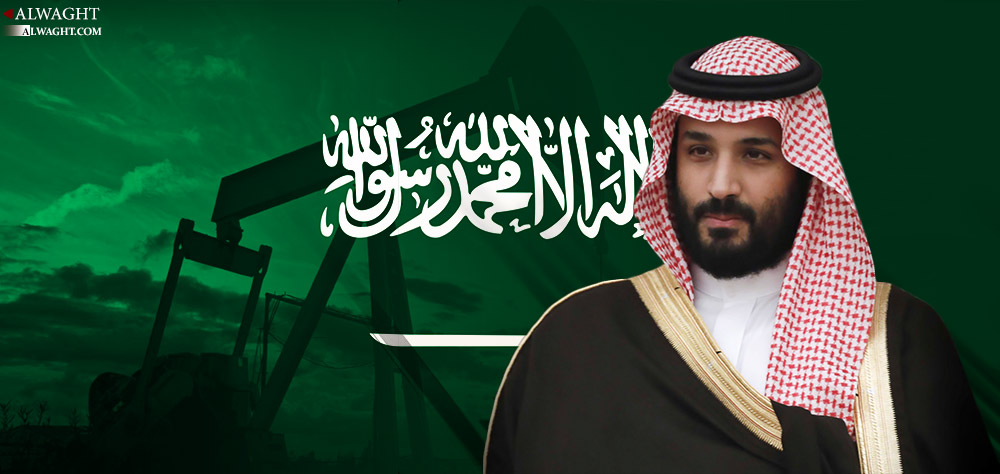Alwaght- Saudi Arabia is one of the region’s rentier states that over 90 percent of its income is earned from crude oil exports. In past few years, Saudi leaders sought to cut reliance on oil cash. So, one of the most important steps taken to this end has been working to design policies to attract foreign investment.
In past few years, the oil prices sharply dropped, leaving the Arab kingdom grappling with challenges straining its economy. The nation’s economy in 2017 faced $82 billion budget deficit, something making the Saudi decision-makers to try more seriously to make a hit with foreign investor attraction policy.
In some periods, they have been successful in chasing their economic ideals, for example until 2015, the year King Abdullah bin Abdulaziz died. Saudis saw the resultant positive reflections on their economy. But this did not last long. Immediately after Salman bin Abdulaziz’s ascension to the throne in early 2015, the foreign investment levels began to turn down.
Foreign investment status in Saudi Arabia
A look at the status of foreign investment in Saudi Arabia makes it clear that under the leadership of King Salman, or more precisely his son Prince Mohammad, the foreign money injection in the nation’s economy has slowed down. In January 2015, the foreign investors provided the oil-reliant economy with around $1.85 billion. This amount hit over $2 billion at the end of the same year. In January 2016, the foreigners invested about $1.89 billion in the Saudi projects, however, this sum saw a shrinking in late July the same year, dropping to $1.71 billion. Although in early 2017 the inflows touched $2.7 billion, the recent measures taken by Mohammad bin Salman have forced them down twice.
Reasons behind inflows shrinkage
A focus on the course of highs and lows of foreign investment in the kingdom makes it clear that bin Salman’s measures not only have failed to get foreign cash into the economy but also caused some earlier capitals to withdraw. The highly miscalculated steps taken in line with the ambitious Vision 2030, which eyes cutting reliance on oil money, are the main causes of the economic troubles.
In November, the crown prince launched a sweeping crackdown detaining many of the monarchy’s wealthy princes and businessmen under anti-corruption and economic transparency excuses. Many around the world questioned his real intents saying the detentions were simply a purge of his political opponents at home. The billionaire Prince Al-Waleed bin Talal and Prince Mutaib bin Abdullah, two of the most efficient royals who are the faces of the Saudi Arabian business worldwide, were among the purge victims.
The princes finally reached settlements with the king in waiting after paying huge ransom for release. Saudi authorities reportedly netted $106 billion in corruption settlements. Reuters news agency reported that bin Talal, a major shareholder at the Twitter social network, paid $6 billion in return for freedom.
The sweep to a large extent caused a sense of financial insecurity in Saudi Arabia. The foreign investors only bring their money to the region when they make sure that their capital is secure and will return with profits. This condition is largely lost with the recent bin Salman moves. Economists warn that the tensions at home could substantially block foreign inflows to the Saudi projects.
Professor Gregory Gause, the head of International Relations Department at the Texas A&M University, commented on the political upheaval in Saudi Arabia saying that the detention wave will apparently damage the investment facilitation in Saudi Arabia.
Before the arrests, many Saudi experts believed that selling part of the Saudi oil giant ARAMCO was simply a cover for huge pays to the royal family. They challenged the king and son’s ability to get the international investors to buy shares of the state-run oil company.
Now with the political purge influencing each and every aspects of the Saudi politics and economy, the foreigners are warier than before in their investment in Saudi kingdom. Despite the fact that Saudi rulers argue that the arrests were part of anti-corruption campaign, the foreign capitalists are worried about the speed and extent of the campaign. Since the initial days, the foreign media brought in the spotlight the detention of bin Talal. They reflected the concerns of big global businessmen about holding of the Saudi billionaire. Those businesspeople now are more doubtful if it is in their best interest to put their money into the Saudi projects. Such a picture of Saudi Arabia bears highly negative consequences also to the size of Saudi foreign investment as well as the shares of Aramco.



























